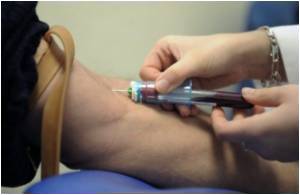Study says an electronic message sent to physicians the moment they ordered a blood test for elderly patients reduced unnecessary use of the test that is often false-positive for the elderly

This study is among the first to look at the effectiveness of an electronic alert for a specific condition in a specific patient population. The randomized trial of 223,877 patient visits for patients 65 years of age and over, and 564,264 patient visits for patients under 65 years of age, was implemented in eight primary care clinics within the Kaiser Permanente health care system in Colorado, each with at least 3,000 patients aged 65 years or older.
Physicians received an alert in Kaiser Permanente's electronic health record, Kaiser Permanente HealthConnect®, when ordering a D-dimer test for patients aged 65 and up. The alert explained the inaccuracy of the test for this age group and suggested using a radiological test as appropriate. As a result, the rate of D-dimer tests for patients over 65 decreased significantly from 5.02 to 1.52 per 1,000 patient visits, a relative reduction of D-dimer orders of 69.7 percent This decrease was maintained throughout the study period and the result was similar when the control group later received the alert.
The results indicate that computerized alerts containing alternative diagnostic or treatment strategies to direct clinicians toward more appropriate alternative diagnostic strategies can be more effective in practice than simply providing "negative guidance."
"Physicians sometimes find it hard to remember to follow evidence-based clinical practice guidelines. Many people have suggested that computer generated alerts within electronic medical records may serve as reminders to improve adherence to best practices," said study lead author Ted E. Palen, MD,,PhD, MPSH, a clinician researcher at Kaiser Permanente's Institute for Health Research. "However, too many alerts produce alert fatigue, where receiving too many alerts becomes frustrating, leading to ignoring or overriding the messages."
Kaiser Permanente has a long history of leadership in health information technology, operating the world's largest private electronic health record, Kaiser Permanente HealthConnect®. Recognizing that health information technology is critical to clinical performance improvement, including patient safety, KP HealthConnect enables all of the organization's 14,000-plus physicians to electronically access the medical records of Kaiser Permanente's 8.6 million members nationwide. Through continued innovation and system optimization, Kaiser Permanente continues to revolutionize medical care, saving lives and preventing expensive and unnecessary procedures, while saving patients' and doctors' time and money.
Advertisement
Advertisement












